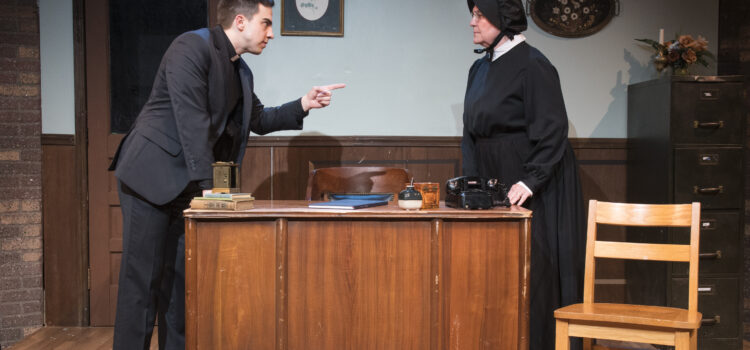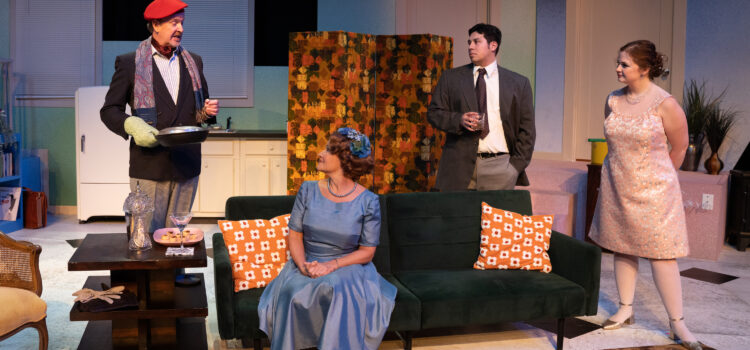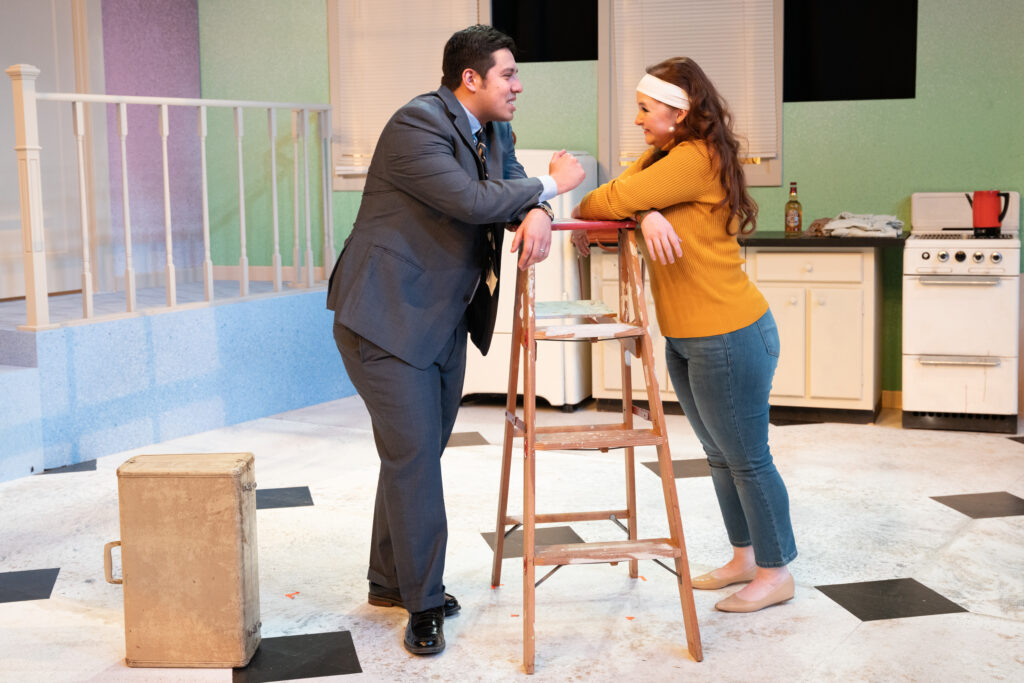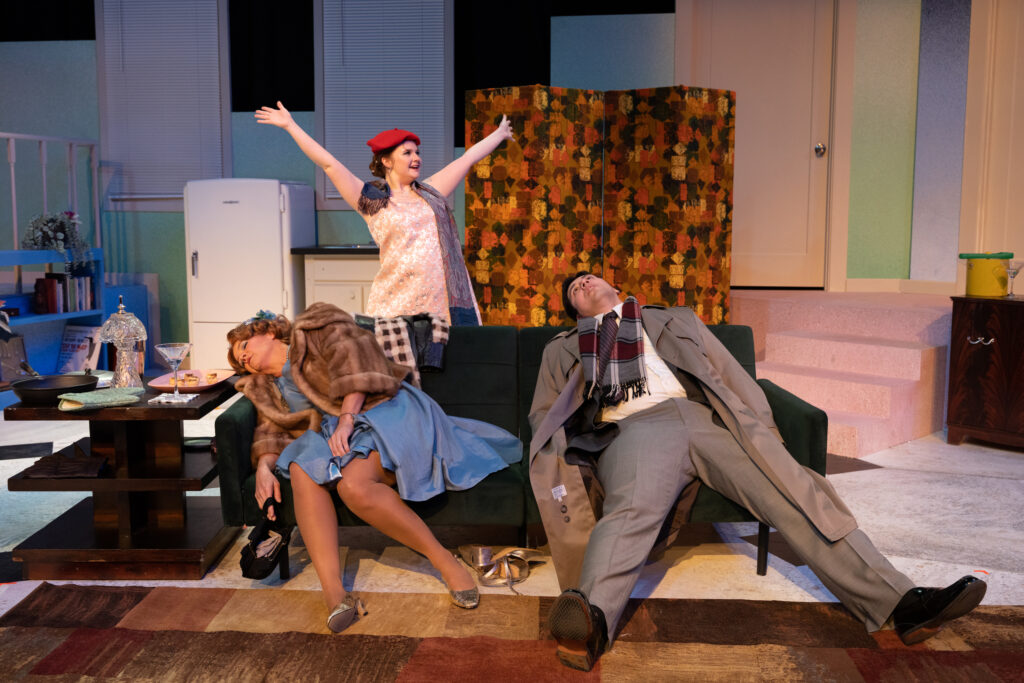By Lynn Venhaus
Strong performances mark Prism Theatre Company’s stirring interpretation of the fascinating and complex “Doubt: A Parable,” which pits a progressive well-liked young priest against a conservative rigid nun who is the feared school principal, plunging us into a nebulous gray area.
The year is 1964, a time when America was reeling from the assassination of President John F. Kennedy, the Civil Rights movement was emerging, and Catholics would be adapting to the monumental Vatican II (1962-65).
At a Catholic school in the Bronx, Sister Aloysius Beauvier suspects Father Brendan Flynn, also the physical ed teacher, of molesting an altar boy, scrutinizing every word and action of the parish priest. Without any evidence, she shares her accusation with Sister James, an eager and inexperienced young teacher.
Sister James, sweet-natured, is drawn into her superior’s distrust with her own suspicions, and Rhiannon Creighton superbly reflects the naivete and people-pleasing character of Sister James.
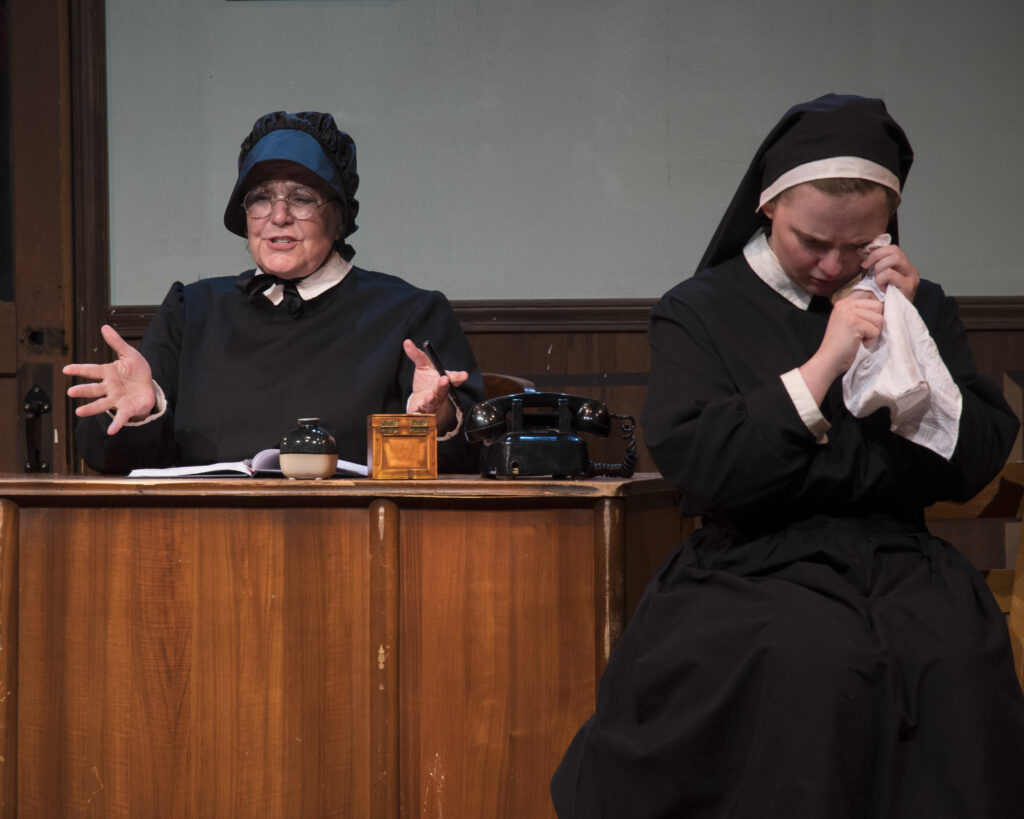
In a fiery performance, Kate Durbin commands every scene she’s in as the embodiment of the typical strict take-charge disciplinarian we recall from our parochial school days. She is laser-focused in portraying the nun’s unbending resolve, and you feel her bristle at every example of what she finds offensive about the priest, who has opposing views to her black-and-white view of human nature. She’s as inflexible confronting modern ways as the priest is open to making the church more accessible.
Jeffrey David Thomas expertly conveys the assertive Father Flynn, making it clear his view of outreach is very different from Sister Aloysius. He projects the vibe of the ‘cool priest’ who thinks sister’s harsh opinions are a detriment to moving the church forward.
After all, the second Vatican council stressed renewal and unity, opening up participation with the laity and focused on what the pastoral needs of parishioners were. Flynn is convincingly committed to reach his ‘flock,’ and from the pulpit, communicates through sermons that are parables, not so much actual truths.
John Patrick Shanley’s masterful 2004 play, which won the 2005 Pulitzer Prize for Drama and the Tony Award for Best Play, always has made people uncomfortable, as they examine questions of faith, belief, traditions, and human behavior.
Shanley, Oscar winner in 1988 for his original screenplay of “Moonstruck,” has inserted some spot-on humor, particularly when the priest and the two sisters discuss plans for the school Christmas pageant. He wants to add a secular popular song. He also takes – gasp – three lumps of sugar in his tea.
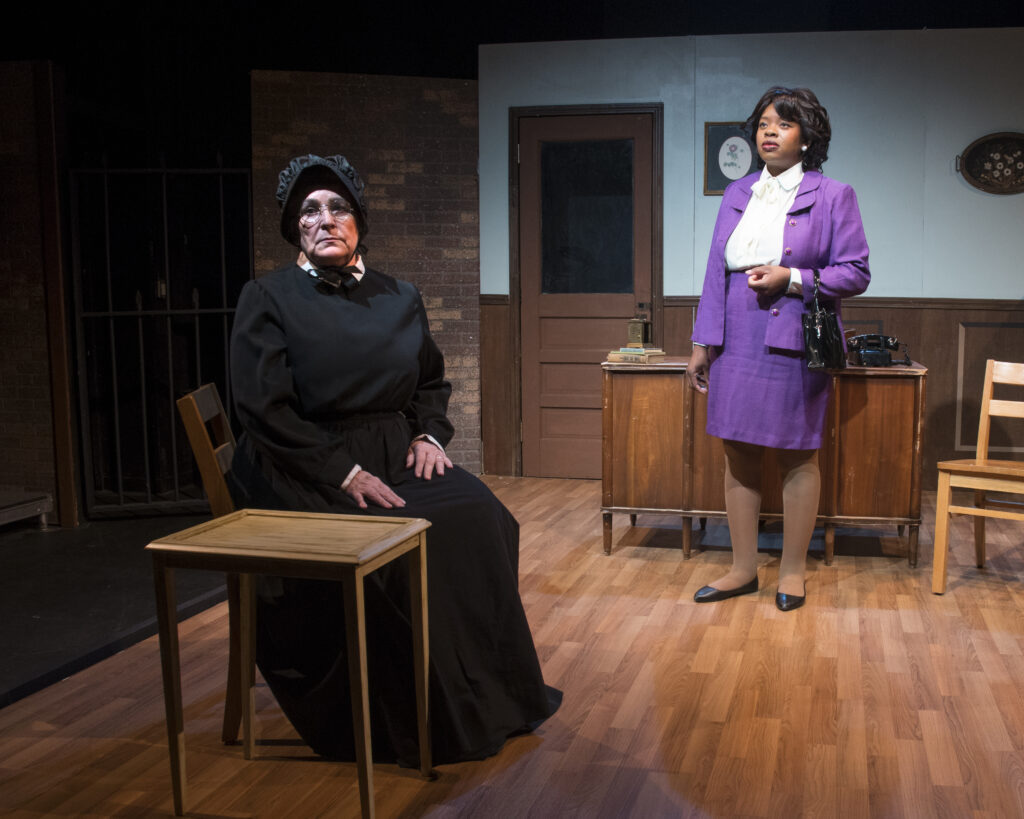
Shanley cannily set this explosive story when the U.S. was undergoing political and social changes, which provides another intriguing angle to the layered narrative. In the Catholic Church, Pope John XXIII and Pope Paul VI addressed the needs of modern congregations.
In trying to make the parish more of a welcome guidepost, is Flynn hiding inappropriate behavior? Or is the principal twisting his views as a personal vendetta?
The pupil that is the target of his extra attention is the only black student in the school, Donald Muller, and Laurell Stevenson is riveting as his mother, who attends a meeting arranged by the principal. She knows her son’s challenges, pointing out that she values opportunities over innuendo. Without raising her voice, in her sole scene, she lays down real-world gravitas, and emotionally delivers a raw and honest analysis about her son thriving or failing at school and in life.
This battle of wills between two authority figures is deftly staged by director Trish Brown, who doesn’t waste a precious second in allowing feelings of uncertainty to seep into our collective conscience.
Because of the nuanced performances, tension effectively mounts, and – squirming may occur. It’s not-so-subtly unsettling, and the 85-minute play is presented without intermission. Does sister’s unwavering sense of duty triumph? We are meant to be the jury and the judge, and the debate isn’t always certain, depending on how powerful the production is.
(And it goes without saying, in light of the revelations of sexual abuse cases on a global scale in the Catholic Church in recent decades, we’re looking at this narrative through that rear-view mirror). That’s why the performances are so crucial to match the sharp dialogue.)
The dynamic exchanges between the cast take place in either the sister’s office or an outdoor garden on the grounds and scenic designer Matt Stuckel has admirably transformed the intimate confines of the Kranzberg black box theatre.
Jacob Baxley’s sound design, Tony Anselmo’s lighting design, Sam Hayes’ costume design and Caleb Long’s technical work strengthened the presentation.
This is a polished production that is convincing in its clarity, with memorable performances that will persuade you to continue the conversation.
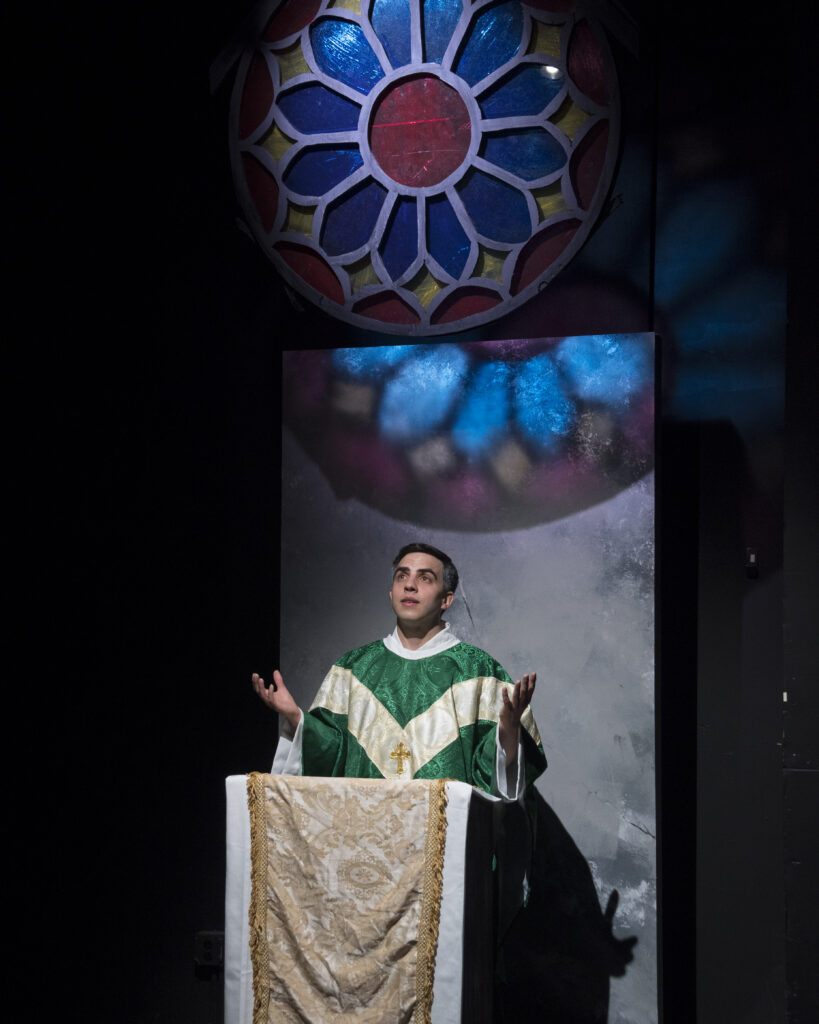
Prism Theatre Company presents “Doubt: A Parable” April 21-23 and 28-30 at the Kranzberg Black Box Theatre, with Thursday through Saturday at 7 p.m. and Sunday at 2 p.m. It contains adult themes, suggestions of sexual abuse and some racist language that may be offensive to some viewers.
The box office opens 30 minutes before each performance or purchase tickets online at MetroTix by phone (314)534-1111 or at the Fabulous Fox box office.

Lynn (Zipfel) Venhaus has had a continuous byline in St. Louis metro region publications since 1978. She writes features and news for Belleville News-Democrat and contributes to St. Louis magazine and other publications.
She is a Rotten Tomatoes-approved film critic, currently reviews films for Webster-Kirkwood Times and KTRS Radio, covers entertainment for PopLifeSTL.com and co-hosts podcast PopLifeSTL.com…Presents.
She is a member of Critics Choice Association, where she serves on the women’s and marketing committees; Alliance of Women Film Journalists; and on the board of the St. Louis Film Critics Association. She is a founding and board member of the St. Louis Theater Circle.
She is retired from teaching journalism/media as an adjunct college instructor.

